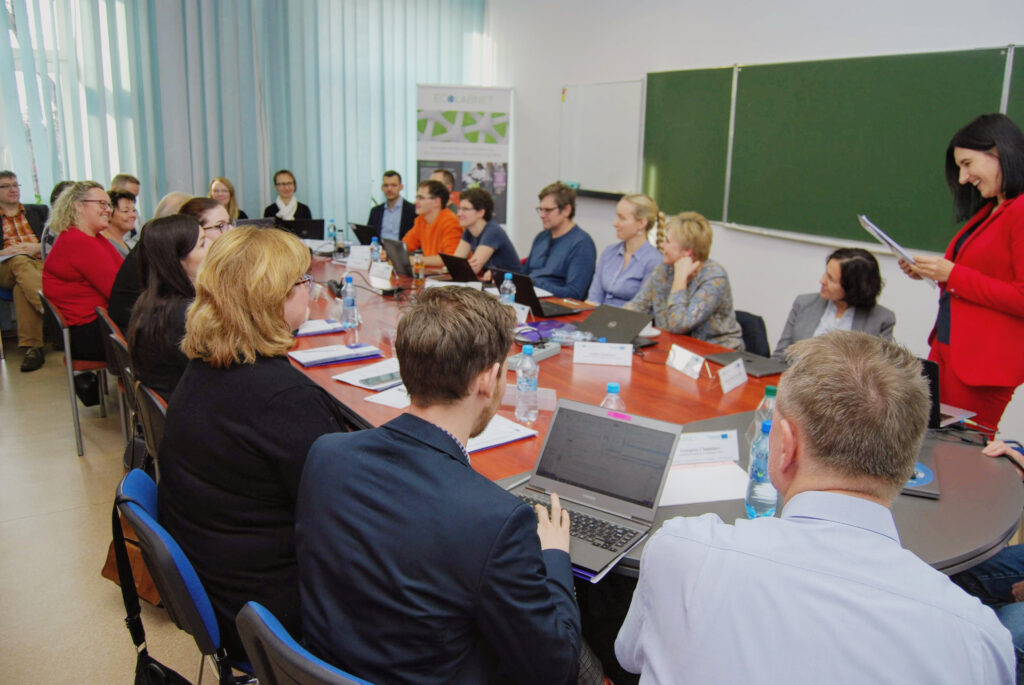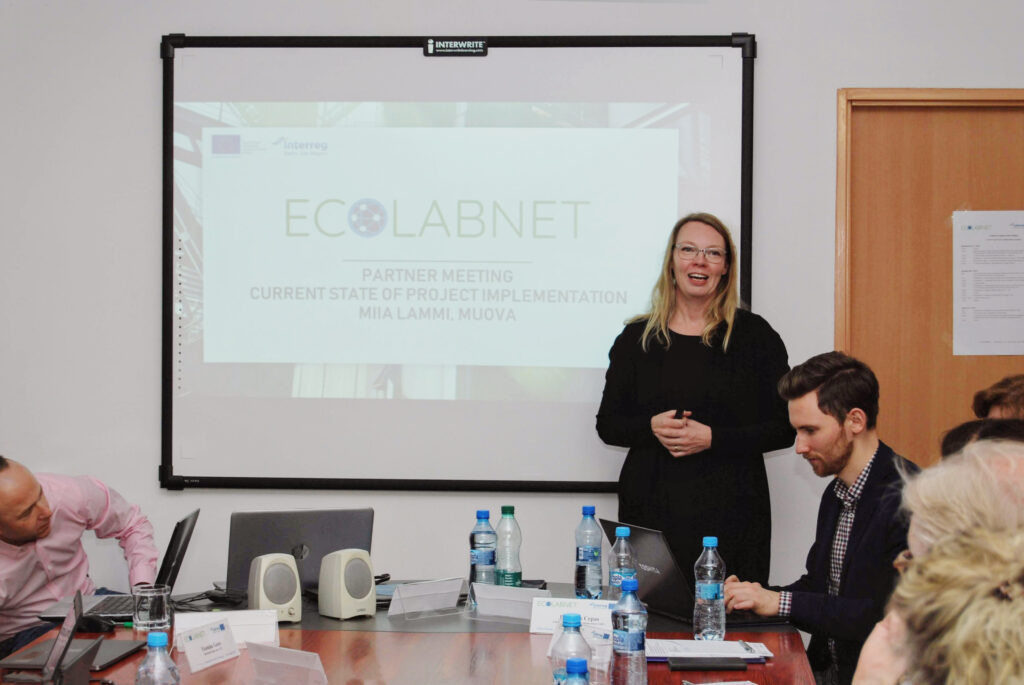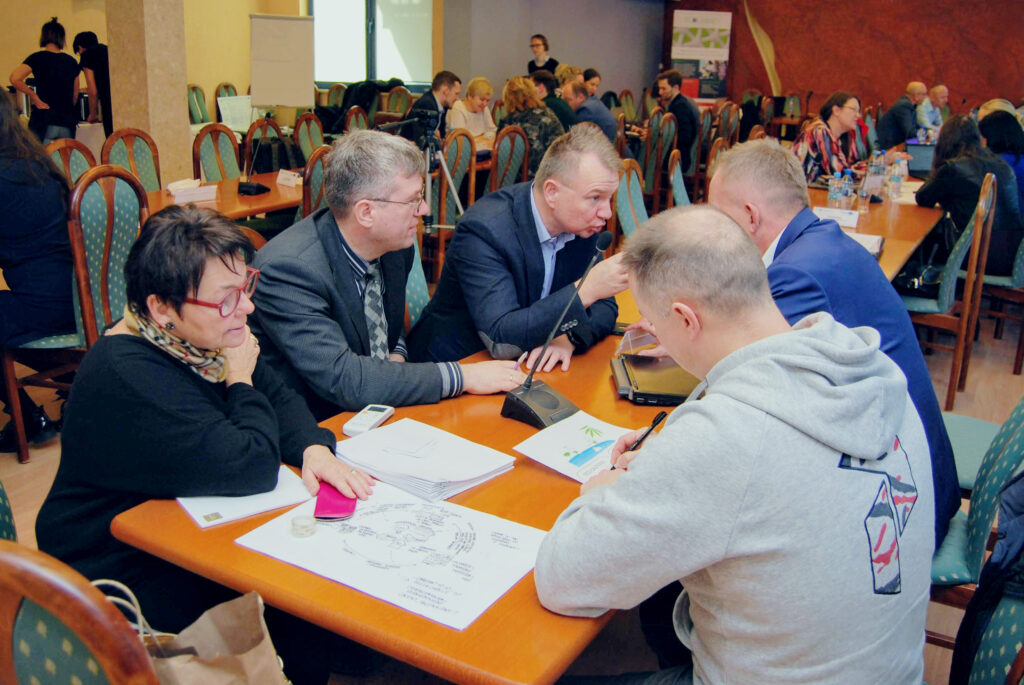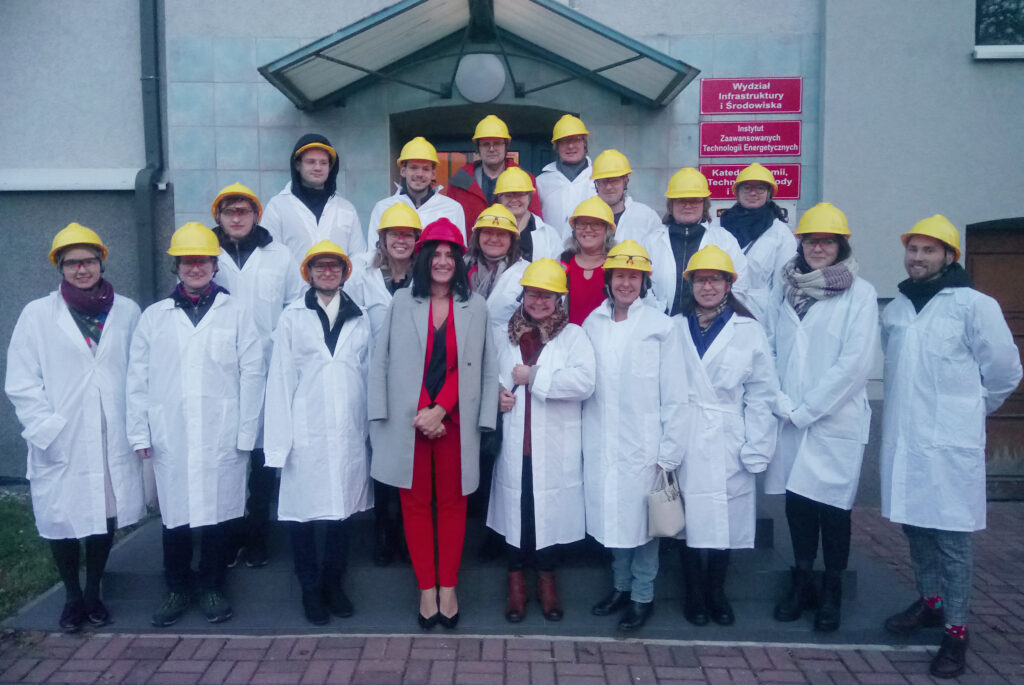

On October 27-29, 2019 in Czestochowa, the second working meeting of the ECOLABNET Network of Service Providers for Eco-innovations in Manufacturing SMEs project, implemented as part of the Interreg Baltic Sea Region program, aimed at creating a network of service providers supporting ecological innovations in manufacturing SMEs from the BSR took place. The meeting was organised by the project partner Czestochowa University of Technology.
The meeting was attended by representatives of the following project partners:
- VAMK Ltd, University of Applied Sciences, Design Centre MUOVA, Finland
- Kaunas University of Technology, Lithuania
- University of Tartu, Estonia
- Czestochowa University of Technology, Poland
- VIA University College, Denmark
- Vilnius University, Lithuania
- Lithuanian Business Confederation, Lithuania
- Sustainable Innovation, Sweden
- Centria University of Applied Sciences Ltd, Finland
- Labsamera MB, Lithuania
- Estrotech Ltd, Estonia.

On the first day of the meeting, which was organised at the Faculty of Environmental Infrastructure of the Czestochowa University of Technology, the CUT partner presented the competence of the working team and showed the equipment of laboratories and the university’s infrastructure. The project coordinator (MUOVA) characterised the current status of the project. There was also a workshop session, during which the results of surveys conducted among SMEs and intermediary organizations were discussed (VIA & LBC).

On the second day, the meeting participants were hosted by the Faculty of Management of the Częstochowa University of Technology, during which subsequent workshop sessions took place. The first workshop led by MUOVA concerned further analysis of the survey results in the context of SME respondent profiles and intermediary organisations. The second workshop included the presentation regarding mapping the tools, laboratories, and networks for ECOLABNET (UTart). During the workshop led by Centria and VU, members of the project teams also actively participated in the presentation of prototypes ideas, where five best of them were selected. The next two workshops concerned the discussion and characteristics of the digital cooperation tools (CUT) and the external cooperation model (VIA), during which many interesting opinions were exchanged and many valuable ideas were collected for the next stages of the project.
After the substantive part, the participants of the meeting participated in a guided tour to the Sanctuary of Jasna Gora, where they could admire the sacral architecture of the Pauline Fathers Monastery, among them an impressive collection of books, the oldest of which come from the 15th century.

In the evening there was a gala dinner, during which the participants exchanged insights and comments from the workshop meetings. In addition, the activities undertaken until then were actively discussed and the schedule of future project meetings was established.

